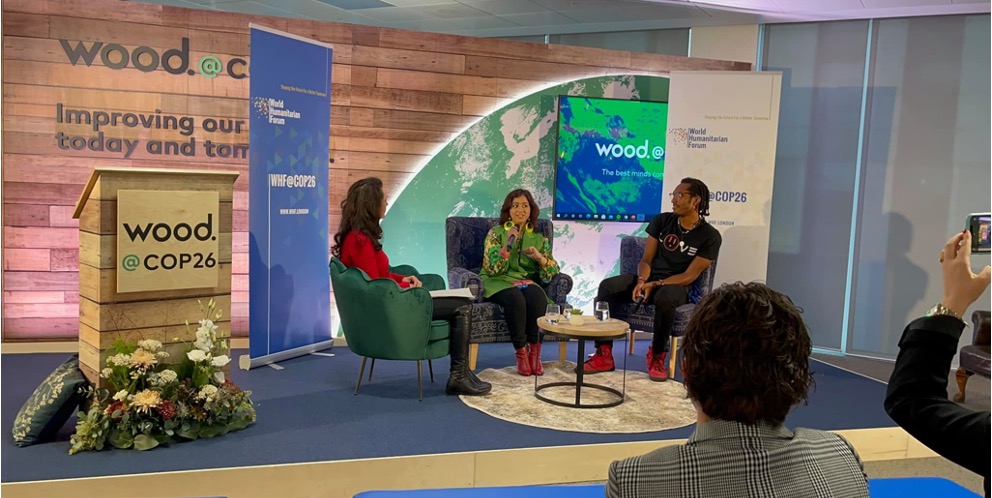
Sustainable Development Goals (SDGs) at UofT
The United Nations’ 2030 Agenda for Sustainable DevelopmentOpens an external site in a new window is an ambitious plan to achieve a peaceful and prosperous future that recognizes the immense obstacles to achieving a sustainable future, such as poverty, inequality, and climate change. At the heart of the Agenda are the 17 Sustainable Development GoalsOpens an external site in a new window (SDGs), which are urgent calls to action for all nations that balance the economic, social, and environmental dimensions of sustainable development.
Universities play an essential role in achieving the SDGs by contributing to global partnerships, education, and research. To address the SDGs, the University is currently developing a proposal that will map ideas to advance research and inform action on the SDGs. The proposal will build on current research initiatives and form new interdisciplinary and global partnerships that will further the SDGs.
The SDGs @ U of T initiative is supported by a faculty-led Steering CommitteeOpens an external site in a new window as well as a student-led Student Advisory Committee Opens an external site in a new windowwhose members represent diverse departments from U of T’s three campuses. Members of the Student Advisory Committee support the development of the ISI proposal by sharing their experiences and perspectives and by engaging the broader student body throughout the proposal development process.
Our Role as Students to Address the SDGs
As co-chairs of the Student Advisory Committee, we strongly believe that student advocacy is essential for universities to address the SDGs.
I, Kehkashan Basu, have been involved in the Sustainable Development process since 2012. As a 12-year-old, I was the youngest international delegate at the Rio+20 Earth Summit, held in Rio de Janeiro, Brazil where the “The Future We Want” agenda was adopted. This agenda formed the bedrock of the Sustainable Development Goals mandate – the creation of a life of dignity for all that leaves no one behind. We, as students, are the present and future of our planet and therefore have a critical role to play in using our education to pave the way for innovation and creativity in order to mobilize the SDGs.
As a 15-year-old, I was the youngest out of the 193 young people selected to represent each UN member state when the SDGs were adopted at the 70th UN General Assembly in New York in 2015, where I stressed that the decisions, we make today will impact our future. In the intervening period between the Rio+20 Earth Summit in 2012 and the adoption of the SDGs in 2015, I was deeply involved in the Open Working Groups and Intergovernmental Negotiations, ensuring the inclusion of youth perspectives into the framework document.
It has been six years since the adoption of the SDGs and their implementation and localization have never been more imperative. In order to do so, awareness about the goals, targets and indicators are essential and students are in a unique position to absorb this knowledge and take action to help successfully implement the SDGs. We, as students of the U of T in particular, have the added advantage of being a part of an environment that promotes multidisciplinary learning. In turn, we as U of T students are well equipped to comprehend the interconnectedness of SDGs and how solutions for their implementation must be harmonized yet will also be context specific.
At the recent UN Climate Change Conference – COP26 – in Glasgow, Scotland, I highlighted the importance of viewing the SDGs through an intersectional lens that moves away from a silo-based approach. Instead, I recommended the adoption of multilateralism and multi-stakeholder actions as the way forward. I emphasized how gender equality, migrant justice, climate action, racial equality, and equitable access to education can be achieved through the intersectional lens of the SDGs. Since I was the Canadian delegate to the Pre-COP Youth Summit in Milan, Italy, I spoke about Canada’s role as a major world power at COP26 to facilitate the implementation of the SDGs. Particularly, I emphasized the role of civil society and students in transforming dialogue to action. As the world now sets its sights on COP27, we must not forget that actions for creating a better world cannot stop in between major conferences. At a time when the world has seen its inequalities highlighted, the SDGs provide a framework for action and we, as students, must leverage that to build a more equitable, just and sustainable world for current and future generations.
